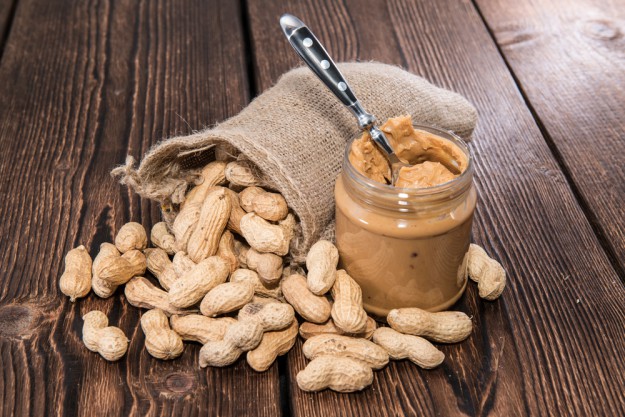Let’s get nutty: Why peanut butter is good for you
mis à jour le 14 July 2015 à 18:32Love pairing peanut butter with bread and biscuits but worried about putting on pounds? Well, it seems the nutty spread is not too bad after all.
Americans consume so much peanut butter each year that it can coat the entire floor of the Grand Canyon. Made from ground-up peanuts, peanut butter was invented in 1890 as a substitute for meat protein. Peanuts are not nuts but rather legumes that are native to South America.
Contrary to popular belief, peanut butter is packed with nutrition such as protein, fiber, healthy fats, potassium etc. The nutrients are a great addition to snacks, meals and desserts and here's how this delicious nutty food can benefit you:
Aids in weight loss
Despite all the fat and sodium content, peanut butter can be considered a diet food. It has an enviable combination of fiber and protein that makes you full for longer periods. This helps you eat less overall and you are also less likely to crave junk food or unhealthy snacks.
Good source of protein
A two tablespoon serving of peanut butter contains seven grams of protein. The human body requires amino acids (found in protein) to build and repair muscle tissue and the protein in peanuts, like other plant proteins, contains an incomplete set of amino acids.
The high protein content also boosts metabolism and builds muscles.
Fiber
A two tablespoon serving of peanut butter contains two grams of dietary fiber. Fiber is vital to regulate the digestive system by promoting healthy bowel movements and similar to protein, it keeps the hunger at bay between meals. Although it is not the most fiber-rich food, peanut butter can help supplement one’s fiber intake. The fiber in peanut butter also combats heart diseases, type two diabetes and obesity.
Healthy Fats
A two tablespoon serving of peanut butter is enriched with 16 grams of total fat- 7.4 grams of monounsaturated fat and 4.5 grams of polyunsaturated fat. The fats help to lower your risk of developing heart disease by reducing the amount of harmful cholesterol in one’s bloodstream and preventing type two diabetes.
Roshni Kapur




